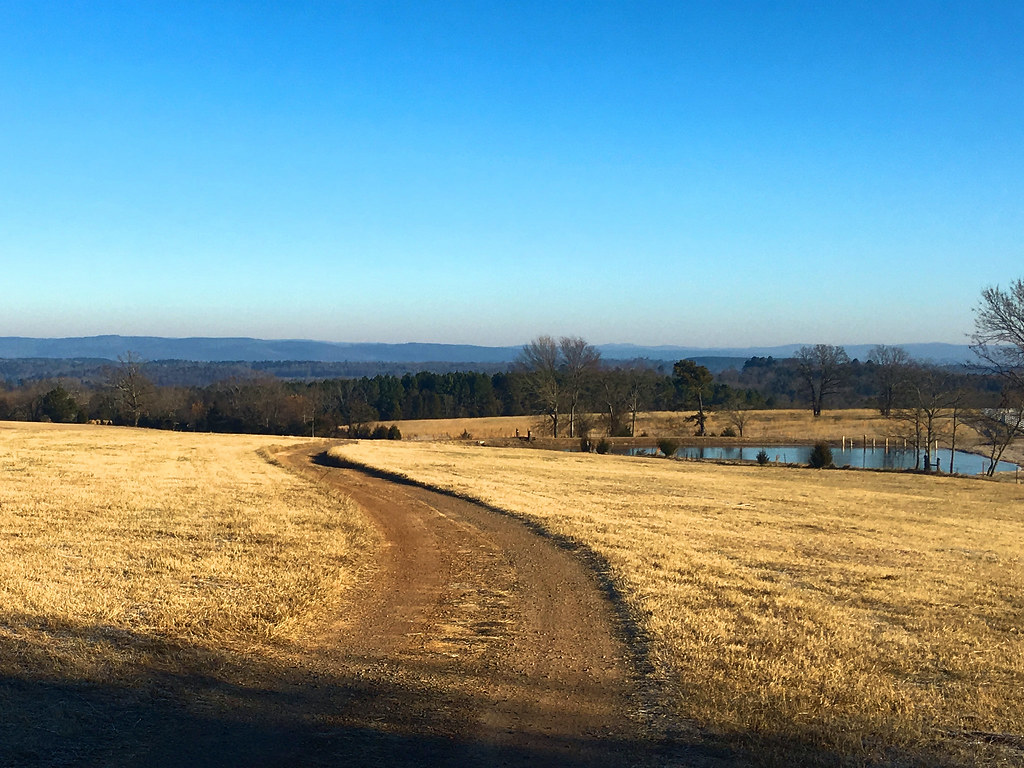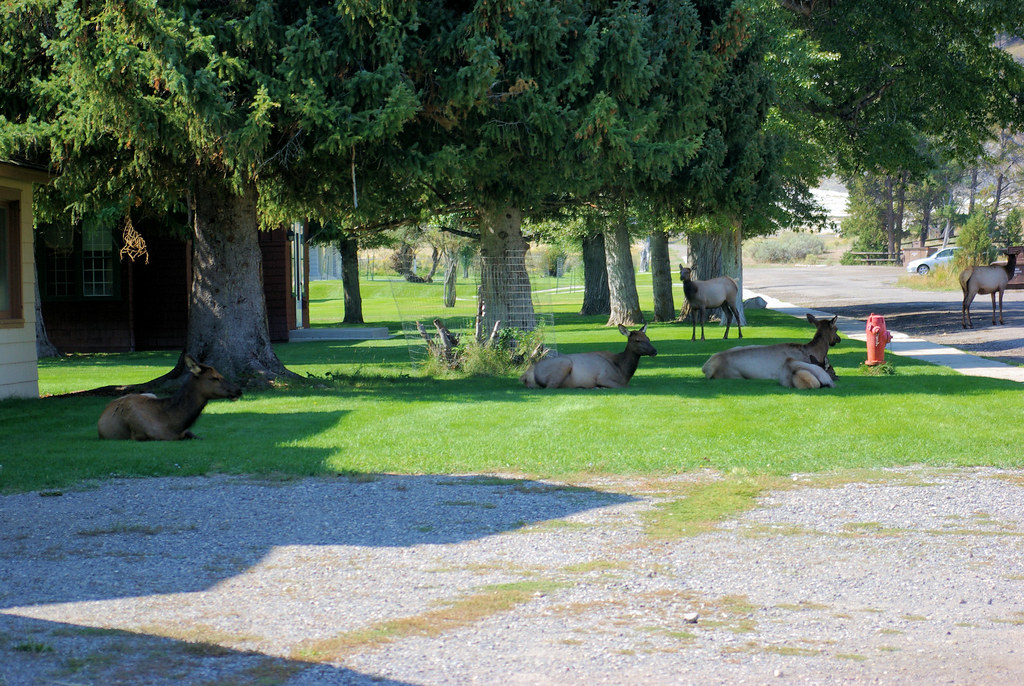Photography Now and Then #18

Today’s photo1: Cold morning in Southern Ozarks of Arkansas, January 18, 2018 (Apple iPhone 6s)
Today the low was 17°F. The heat pump kept the house at 68° until just after we hit the low for the day, after which it dropped to 66°. We’ve actually gotten above freezing today.

Photo Favorite2: Elk on lawn in Mammoth Hot Springs, Yellowstone National Park, Wyoming, September 13, 2007 (Pentax K10D)
It’s very common to see elk in Mammoth Hot Springs, especially during the fall rut season. There are somewhere between 10 to 20 thousand elk that spend some part of the year inside the park, for the most part wintering outside the park in lower elevations. Elk are an important food source for wolves, bears, mountain lions, and at least 12 scavenger species, including bald eagles and coyotes.
Elk are the most abundant large mammal found in Yellowstone. European American settlers used the word “elk” to describe the animal, which is the word used in Europe for moose (causing great confusion for European visitors). The Shawnee word “wapiti,” which means “white deer” or “white-rumped deer,” is another name for elk. The North American elk is considered the same species as the red deer of Europe.3
- Today’s Photo is a photo that is almost always taken the day of the blog post. In some instances, posts may be backdated if internet access is not available on the day of the photo or other reasons prevent posting Now and Then.
- Photo Favorite is a randomly selected older photograph from a batch of photos specifically “curated” for Now and Then.
- Elk – Yellowstone National Park, National Park Service.
Note: Reference links were accessed on the date the blog post was published, unless otherwise stated.

